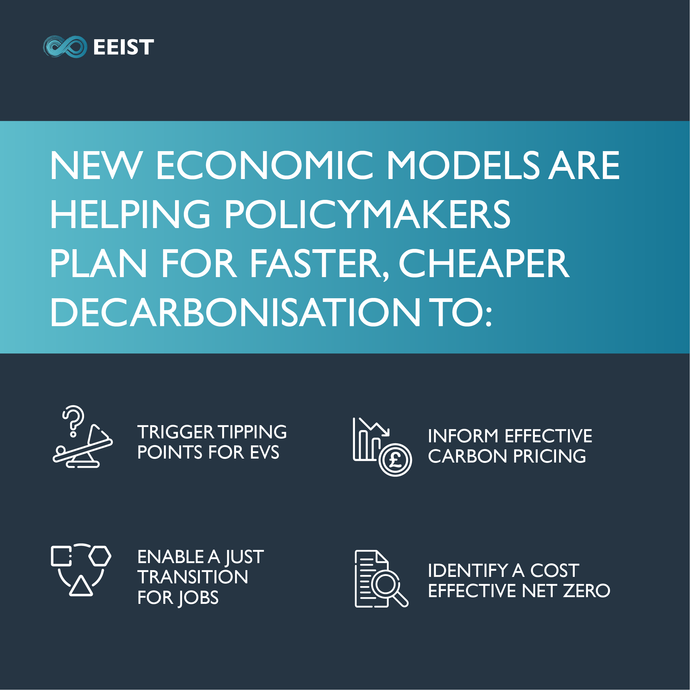A new report from INET Oxford researchers and colleagues shows how new economic models can give policymakers the right tools to speed the clean energy transition.
Where will jobs be gained and lost as we move away from fossil fuel energy? What skill gaps in the workforce are likely to emerge? How could tax revenues from fossil fuels be replaced? Policymakers need the tools to answer these questions and more if they are to find the best decarbonisation routes fast enough to avert climate breakdown.
This new report - authored by INET Oxford economists Pete Barbrook-Johnson, Fernanda Senra de Moura, Alex Clark, Cameron Hepburn, and J. Doyne Farmer, alongside their EEIST project colleagues - sets out to equip policymakers with these tools.

Taking climate action requires models that capture the complexity and dynamism of the economy, allowing us to map out strategic economic shifts and target individual sectors; complexity economics and systems thinking are invaluable for such needs. They allow for models that capture economies in flux, as well as for economic feedback loops, tipping points, and the social dimensions of economic decisions.
This new report represents a major effort to demonstrate the value of these new economic approaches to energy transition policy questions. Through 15 real-world, global, regional and national case studies, developed in partnership with policy stakeholders, the report demonstrates how these new economic modelling approaches can deliver crucial insights for decision makers. It also provides guidance on how to evaluate and choose between different modelling approaches and how to support their use.








